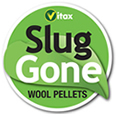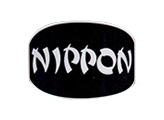How to control slugs organically
Control slugs without risk to pets, wildlife and the environment
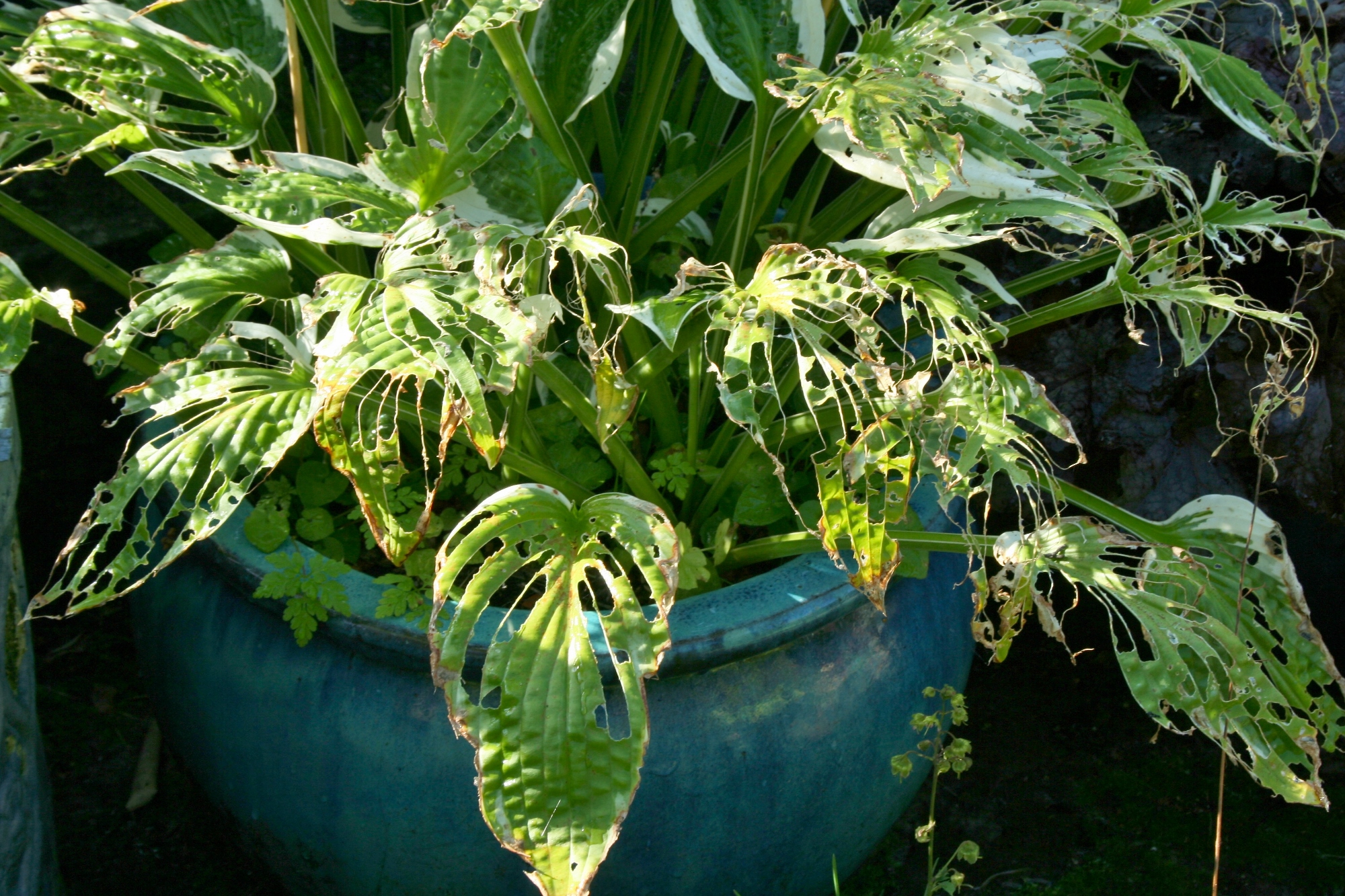 Slugs and snails are the gardener’s worst enemies. Controlling them is essential to protect those tender shoots and leaves and allow your plants to grow and thrive. Traditional slug killers are harmful to wildlife and a risk to pets; most alternative deterrents are unreliable. There are ways of controlling slugs organically and these are the precautions you need to take, before damage occurs.
Slugs and snails are the gardener’s worst enemies. Controlling them is essential to protect those tender shoots and leaves and allow your plants to grow and thrive. Traditional slug killers are harmful to wildlife and a risk to pets; most alternative deterrents are unreliable. There are ways of controlling slugs organically and these are the precautions you need to take, before damage occurs.
Which plants are susceptible?
The most susceptible plants are those with soft, succulent leaves and stems. If you like to eat it, so will slugs and snails. The emerging shoots of perennials are particularly susceptible, as are the soft leaves of hostas. Young seedlings soon disappear when slugs and snails are around.
Where do they come from?
Slugs and snails lurk in damp shady places: under foliage, hedges, wood piles, rocks and stones. They gather under the rims of flowerpots and tiles, ready to emerge at night and feed. Any barrier or bait needs to be between the slugs and snails and your precious plants. They love mild, damp weather; be vigilant in these conditions.
Keeping slugs and snails at a distance
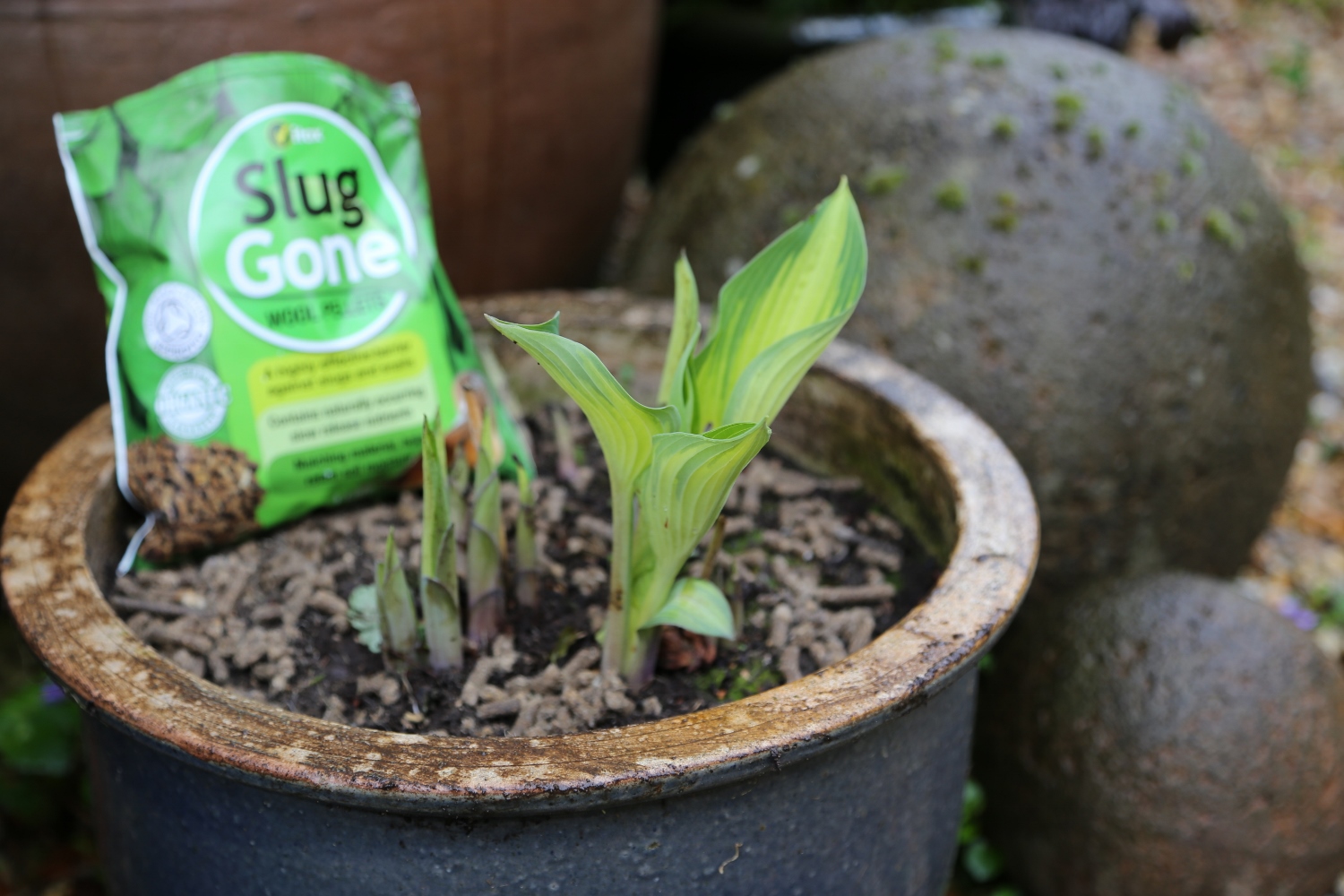 Various materials are recommended to create barriers around susceptible plants: eggshells, grit, wood ash, coffee grounds to name but a few. All have some effect, but are rarely reliably successful. Vitax Slug Gone is a highly successful barrier deterrent made from wool waste or “shoddy”, a by-product of the wool manufacturing process. It is applied as easy-to-handle pellets which you spread around vulnerable plants. They swell and release fibres that are an irritant to slugs, creating a barrier that slugs and snails cannot cross. Gradually the pellets biodegrade and disappear into the soil, feeding your plants at the same time.
Various materials are recommended to create barriers around susceptible plants: eggshells, grit, wood ash, coffee grounds to name but a few. All have some effect, but are rarely reliably successful. Vitax Slug Gone is a highly successful barrier deterrent made from wool waste or “shoddy”, a by-product of the wool manufacturing process. It is applied as easy-to-handle pellets which you spread around vulnerable plants. They swell and release fibres that are an irritant to slugs, creating a barrier that slugs and snails cannot cross. Gradually the pellets biodegrade and disappear into the soil, feeding your plants at the same time.
Tip: Spread a ring of Slug Gone around each of your hostas, delphiniums, dicentras and other perennials with juicy shoots and keep them free from damage. Spread thinly but closely: those pellets swell!
Safe slug pellets
Traditional slug pellets contain metaldehyde, harmful to wild birds, 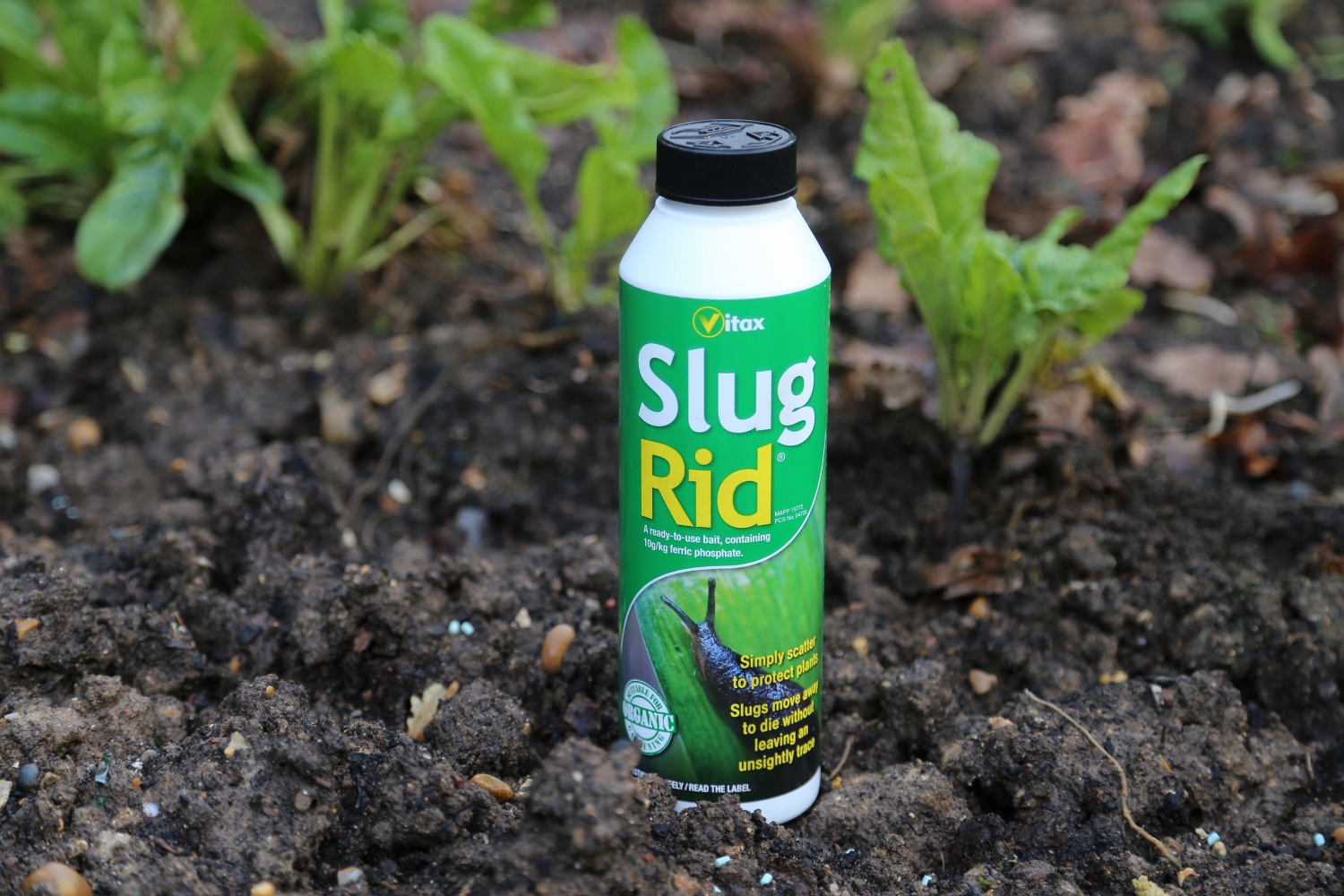 hedgehogs and other wildlife. Although unlikely to eat the pellets they will eat dead slugs and snails that have eaten the pellets. Vitax Slug Rid is based on Ferric phosphate. When slugs and snails eat the pellets they stop feeding and move away without leaving unsightly trails or dead bodies. They are suitable for organic gardening and, if used as directed, pose no problem to children, pets or wildlife
hedgehogs and other wildlife. Although unlikely to eat the pellets they will eat dead slugs and snails that have eaten the pellets. Vitax Slug Rid is based on Ferric phosphate. When slugs and snails eat the pellets they stop feeding and move away without leaving unsightly trails or dead bodies. They are suitable for organic gardening and, if used as directed, pose no problem to children, pets or wildlife
Tip: Use Slug Rid pellets sparingly, most gardeners use too many! Position them a short distance from vulnerable plants, between the plants and likely places where slugs hide. Reapply regularly, especially after heavy rain.
Andy McIndoe for Vitax
Find a stockist near you
To check if the product you require is in stock, please contact the retailer prior to visiting.
Your login details have been used by another user or machine. Login details can only be used once at any one time so you have therefore automatically been logged out. Please contact your sites administrator if you believe this other user or machine has unauthorised access.







